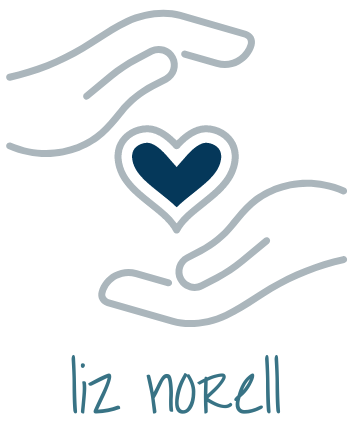A couple of weeks ago, I caught most of Josh Eyler‘s talk to Plymouth State University’s OPEN CoLab about building a post-pandemic future for higher ed. (missed it? You can watch the excellent talk here.)
There were a dozen fruitful threads that emerged from his talk — and the incredibly active chat and live-tweeting that happened during and after — but today I want to talk about one close to my heart: “proctoring” (aka surveillance) software. My initial impulses, when a committee on which I serve was asked to review options for remote exam proctoring, were to reject this as something actually needed. Since then, I’ve moved from skeptic to obnoxious, crusading opponent. I’m probably self-righteous about it, too, but I can’t seem to muster remorse, as the definition of self-righteous points out my quandary: “having … a certainty … that one is totally correct or morally superior.” When it comes to things like Proctorio or HonorLock, I’m quite certain that I’m totally correct that their products are overpriced intrusions into our vulnerable students’ lives and are a morally bankrupt way to spend taxpayer and/or student dollars.
So for today’s #100DaysToFall installment, I thought I’d share what Eyler had to say in his talk and expand on that a bit.
@ChelseaMD01 tweeted during his talk:
Josh linked our impulses around surveillance proctoring to our impulse to find something, anything, we could control. This reaction to uncertainty is quite predictable. Uncertainty is cognitively and emotionally taxing–meaning it exhausts us and leaves us with fewer resources to handle our day-to-day tasks. There’s a reason COVID left so many of us feeling exhausted.
There are healthier ways to cope with uncertainty and its attendant anxiety (for example, UC San Francisco recommends investing in our social connections, getting good sleep, exercising, and meditation) … and then there are the less-healthy ways, such as, *cough*, asserting control absolutely wherever you can.
You can guarantee that anytime the “problem” is “not feeling in control,” the market will provide solutions (for a small fee, of course). The “diet” industry exists to solve “problems” it helped us diagnose in ourselves and in others, for example. And the remote proctoring industry has raked in obscene amounts of money over the last year by convincing colleges and universities that they cannot trust their students not to cheat.
The eye-popping numbers — in a world where higher ed budgets are in free fall and whole departments are being axed — are unconscionable. For example, the University of Wisconsin-Madison has a one-year contract for $260,000 (!).
Articles about the backlash to these services abound; Vice covered the decision of some schools to abandon Proctorio, The Washington Post covered students’ concerns over the invasion of privacy, and Hybrid Pedagogy shared a deep dive into the philosophical, ethical, and discrimination-based issues that arise from these remote proctoring “solutions.” An Inside Higher Ed piece underscores the pervasiveness of the issue, though: An April 2020 Educase poll found that 54 percent of institutions were using these services, and another 23% reported considering these services.
I was especially taken with a line in this article from Bonnie Stewart, an assistant professor at the University of Windsor, about issues with remote proctoring: “Academic integrity matters. But integrity works both ways.” Her argument is that the thousands we’re spending on these services could be reallocated to hiring more instructors / reducing class sizes, assisting faculty with redesigning assessments to make them more relevant and less susceptible to cheating, and/or providing grading assistance to faculty members.
For educators allegedly concerned about equity and student success, the investment of literally thousands of dollars on technologies that only further exacerbate these issues is a slap in the face. It suggests that equity and student success are institutional priorities if and only if they maintain the status quo in higher ed. Rather than asking the critical questions — you know, like, Why are students cheating in the first place? — the investment of significant dollars into remote proctoring reinforces an adversarial relationship between students and higher ed. It messages to students that they cannot, will not, be trusted to learn without supervision or an oppressive system of punishments standing at the ready. There are no carrots in these systems; it’s all sticks, and they’re sticks designed to do maximum damage to the learner’s sense of agency, motivation, and confidence.
The impulse to design harsh systems of punishment for students who engage in academic dishonesty without having institution-wide conversations about how and why they do so defies common sense. It’s the same impulse that leads to overly aggressive policing in poor and minority neighborhoods — it makes an assumption of ill intent without first interrogating why the people in power feel they must treat a whole class of people (in this case, our students, whom we claim to love) as the enemy.
A pedagogy rooted in love cannot abide by such draconian systems.
An educator who seeks to meet students where they are and to walk alongside them as they chase their goals would not simultaneously demand they subject themselves to millisecond-by-millisecond eyeball tracking while taking an exam.
An institution that wanted to welcome its community to enroll and invest in the local community would not then immediately put those beloveds through an educational system that treated them as things to monitor, rather than as fully human beings worthy of humane treatment.

An unfortunate coda to this story is that the remote proctoring companies aren’t taking all this criticism in stride. Indeed, Proctorio has sued a University of British Columbia learning technology specialist named Ian Linkletter for his criticisms of the company. The legal fees Linkletter has required to fight this lawsuit are are astronomical; I was proud to donate to his GoFundMe, and I hope you will, too.
Come back soon for more installments of the #100DaysToFall series.







